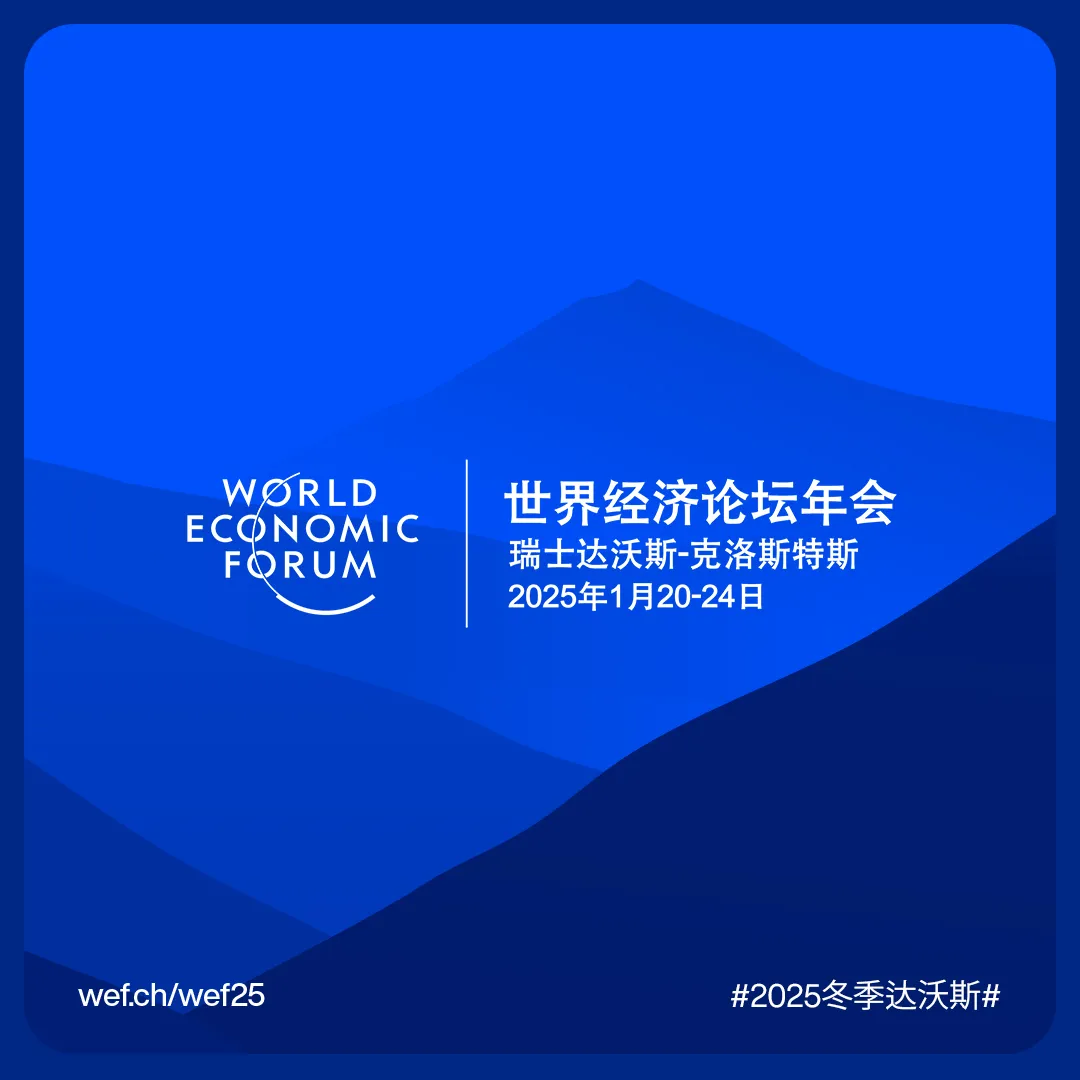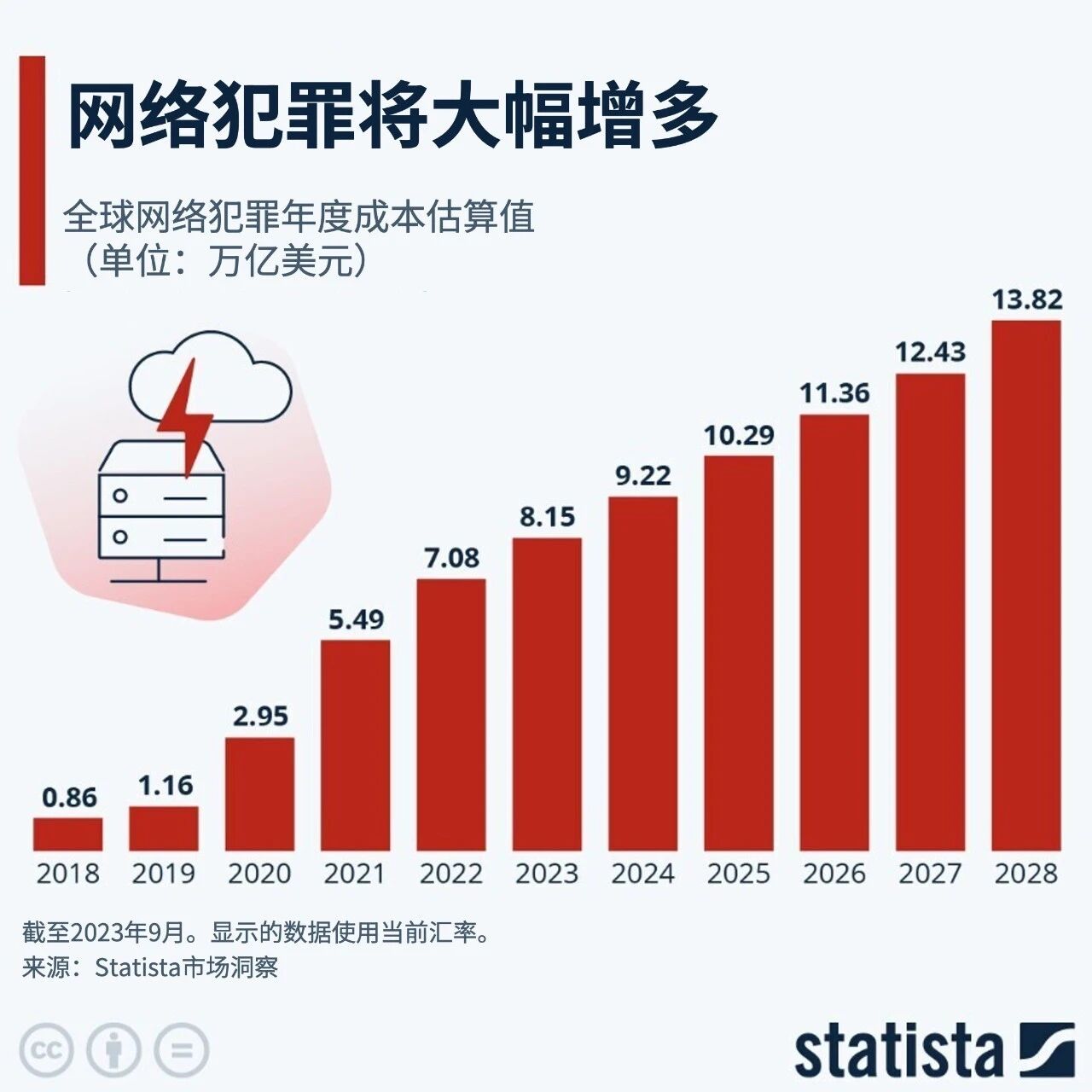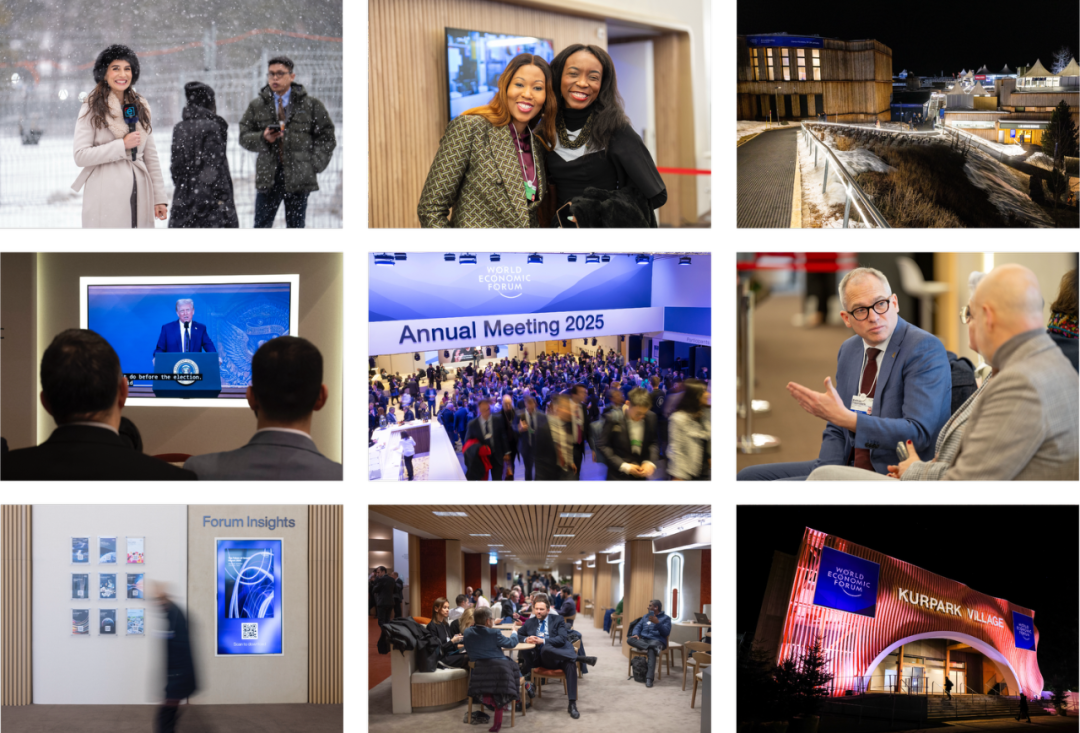
The 2025 World Economic Forum Annual Meeting will bring together nearly 3,000 leaders from more than 130 countries to discuss the theme "Collaboration in the Age of Intelligence," exploring strategies to tackle pressing global challenges and identifying emerging opportunities. As the global economy undergoes a profound paradigm shift, this year’s gathering will focus on how to reignite growth, harness cutting-edge technologies, and bolster societal and economic resilience.
This year's annual meeting agenda will be live-streamed in full on the World Economic Forum website, cn.weforum.org. Additionally, select sessions will be broadcast live via the WEF's official Weibo account. We encourage you to join the conversation on Weibo using the hashtag #2025WinterDavos#.The World Economic Forum's official WeChat account will also deliver daily summaries of the meeting and insights from featured guests.
What were the highlights of yesterday's agenda? Check out the excerpt we've prepared for you:
Making climate technology work
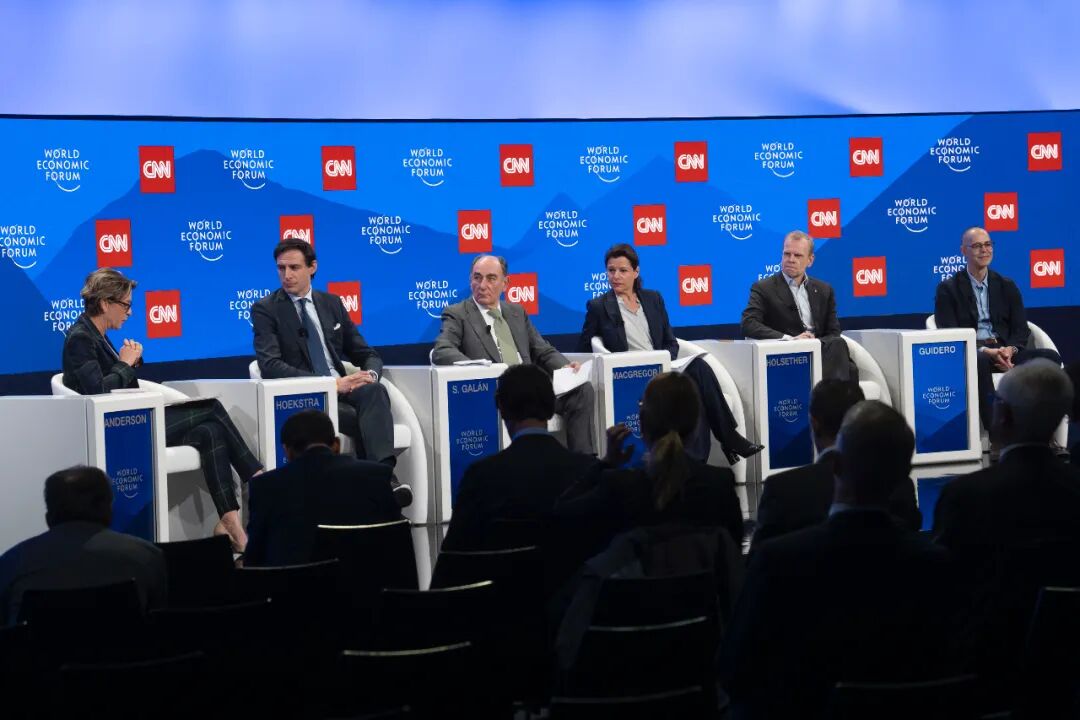
As the world approaches the midpoint of the Decade of Action, the window for showcasing and commercializing emerging climate technologies is rapidly closing. Despite strong signals of demand, these projects have yet to reach final investment decisions in time to scale up by 2050. How can early adopters of net-zero emission technologies collaborate across industries—and even beyond—to overcome financial constraints, accelerate technology adoption, and drive large-scale implementation?
Rebecca Anderson
CNN International Channel Editor-in-Chief and host of the program "Connecting the World"
Despite innovative solutions introduced by initiatives like the Pioneers Alliance, progress in decarbonization investment decisions remains slow, making it difficult to meet the ambitious carbon reduction targets set for 2030. Particularly in traditionally high-carbon industries, the decarbonization process is facing significant challenges, underscoring the urgent need for enhanced collaboration among governments, businesses, and innovators to tackle the climate crisis together.
Wopke Hoekstra
European Union Commissioner for Climate, Net-Zero Emissions, and Clean Growth
Europe is tackling the dual challenge of combating climate change while driving economic growth. Although heavy industry faces high energy costs and challenges in cutting emissions, its development remains critical for the continent. At the same time, clean-tech companies are vital—yet their growth in Europe requires shorter approval processes, reduced bureaucratic hurdles, and support for cross-border standardization. The upcoming agreement aims to unlock major breakthroughs in both heavy industry and clean technology, enabling Europe to meet global climate challenges, boost its competitiveness, and ensure that this transition is equitable, fair, and sustainably managed.
Ignacio S. Galán
Iberdrola Chairman and CEO
Europe needs to reduce its reliance on external energy sources, fostering energy independence by leveraging locally available renewable resources like wind and solar power to achieve a low-cost, highly competitive energy transition. Iberdrola has successfully cut emissions and stabilized costs by retiring fossil-fuel plants, investing in renewable energy projects, and entering into long-term power-purchase agreements. Meanwhile, existing nuclear power plants remain critical for providing reliable electricity in sectors with high demand, underscoring their vital role in ensuring a stable energy supply.
Kathleen McGregor
CEO of ENGIE Group
Europe's energy transition has made significant progress, with nearly 50% of electricity generated from renewable sources last year. We need a comprehensive strategy that strengthens cross-border electricity markets, advances energy storage technologies, and invests in green molecular energy—ensuring that the energy transition is both environmentally friendly and economically viable for industries and consumers alike. This approach will help bolster Europe’s energy sovereignty and drive sustainable development across the continent.
Svein Tore Holsether
Yara International President and CEO
The fertilizer industry is a highly energy-intensive sector that remains challenging to decarbonize—but it also plays a critical role in global food security. By leveraging innovative technologies and fostering value-chain collaborations, our company has significantly cut emissions and is positioning ammonia as a key enabler of the energy transition, while simultaneously advancing renewable hydrogen technologies to unlock new business opportunities in the drive toward carbon neutrality.
Rodi Guidero
Breakthrough Energy Executive Director
Innovation is the key to tackling the climate crisis. Breakthrough Energy focuses on sectors like manufacturing, power, and agriculture, driving advancements in energy use while simultaneously improving living standards. Our team brings together leading scientists and entrepreneurs, investing in cutting-edge technologies such as nuclear energy, energy storage, and green hydrogen—offering comprehensive support that spans from early-stage startups to fully mature solutions. Transforming our energy systems is one of humanity’s greatest challenges, requiring accelerated technological innovation and strengthened global collaboration.
Click here to watch the conference replay.
Redrawing the Employment Landscape
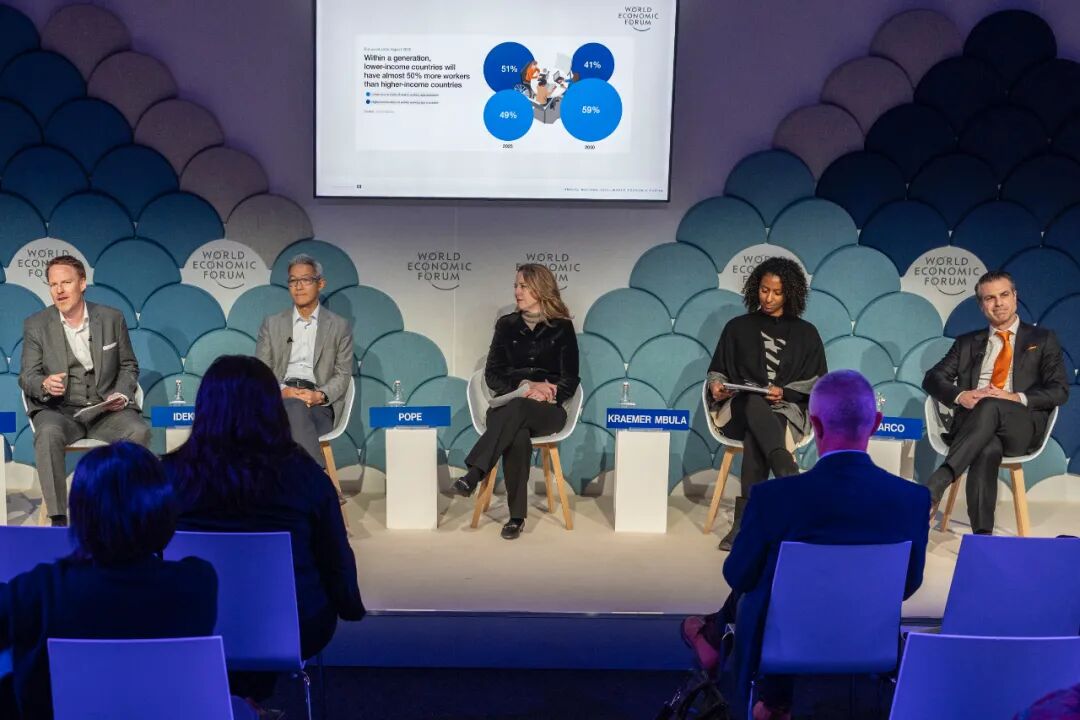
Within a generation, the number of workers in low-income countries will surpass that of high-income countries by 50%. Digital technologies have the potential to make the global workforce more geographically inclusive, while the resurgence of industrial policies is expected to bring manufacturing jobs "back" to certain regions.What will the new employment landscape look like?
David Bach
Dean of the International Institute for Management Development (IMD) in Lausanne, Switzerland
The key to the future of work lies in paying attention to shifts in job distribution and demographic trends. Technologies like artificial intelligence are not only reshaping skill demands and organizational structures—they're also redefining the global geography of employment. As a result, helping people adapt to these changes and seize emerging opportunities has never been more critical.
Nacho De Marco
Founder and CEO of BairesDev
By leveraging advanced data analytics, skill gaps can be accurately identified, enabling AI-powered recruitment platforms to more effectively match talent with job requirements. Meanwhile, internet access technologies like Starlink are bringing valuable career opportunities to remote areas, potentially addressing the root causes of talent mobility challenges and regional development imbalances.
Hisayuki Idekoba
President, Chief Executive Officer, and Representative Director of Ricoh Holdings
Developed countries are grappling with aging populations and shrinking workforces, making immigration a critical source of labor. For instance, in the U.S., 90% of new workers over the past five years have been immigrants, with industries like agriculture, hospitality, manufacturing, and healthcare relying particularly heavily on them. Meanwhile, there’s a clear trend toward easier cross-border job searches and more relaxed language requirements—currently, 30% of jobs in the UK don’t require English proficiency, a pattern mirrored in countries like the Netherlands and Spain. Additionally, an increasing number of positions now come with visa-support programs, offering a promising new pathway to address labor shortages.
Amy Pope
Director-General of the International Organization for Migration
The geographical distribution of jobs significantly influences migration patterns. Many migrants aren’t seeking asylum—instead, they’re driven by the lack of employment opportunities in their home countries and hope to enter informal labor markets in places like the U.S., Europe, and beyond. Meanwhile, Africa’s young population is growing rapidly, yet job prospects remain scarce. In contrast, regions such as North America, Europe, Japan, and South Korea are grappling with severe talent shortages—not just in high-tech fields, but also in sectors like construction and caregiving, where human skills remain irreplaceable by AI.
Erika Kraemer Mbula
Professor of Economics at the University of Johannesburg
Africa boasts the world’s youngest population structure, with 60% of its people under the age of 25. By 2050, this demographic is expected to account for one-third of the global workforce, presenting Africa with a unique opportunity to create jobs and cultivate globally competitive talent. Today, Africa’s tech ecosystem is rapidly emerging, as innovative startups flourish in cities like Cape Town and Nairobi, generating employment opportunities both locally and on the global stage. Meanwhile, the green economy holds immense potential—by leveraging skills training and digital technologies, Africa can transform its abundant natural resources into a powerful engine for economic growth.
Click here to watch the conference replay.
Special address by Argentine President Javier Milei
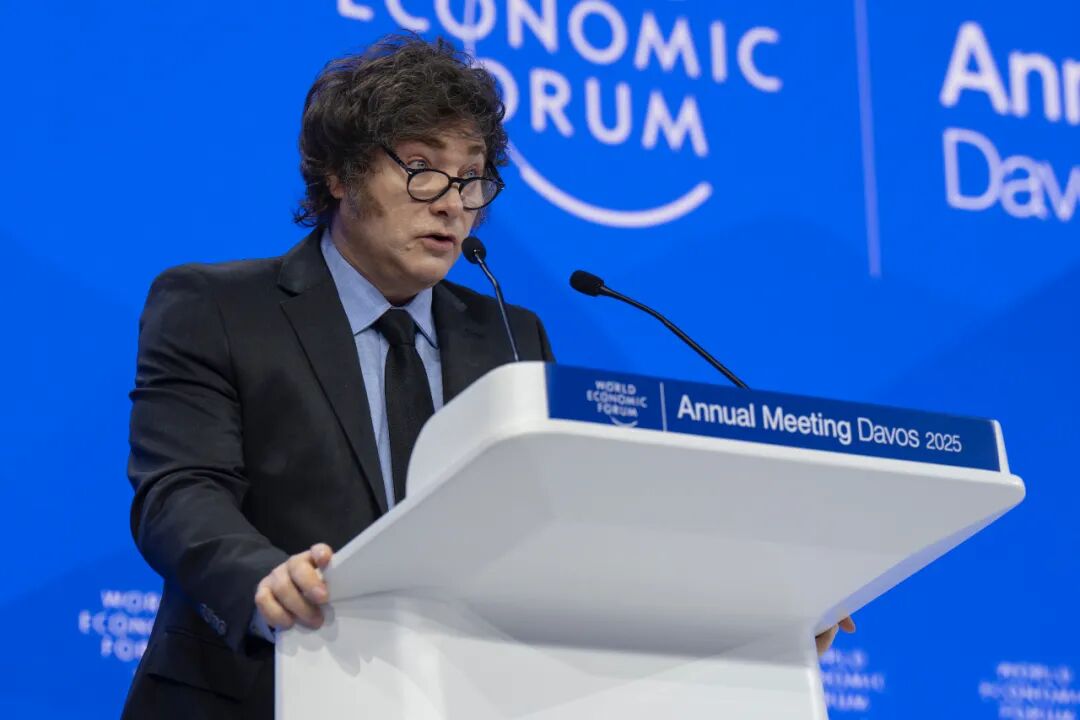
Argentine President Javier Milei stated that looking back one year ago, he stood alone in Davos as Argentina’s president, highlighting numerous challenges facing the Western world—only to be met with surprise and skepticism. Today, however, he no longer feels isolated, as the global community has begun to embrace the changes taking place in Argentina. He emphasized that Argentina’s remarkable economic transformation underscores the country’s commitment to responsibility and its ability to keep promises.
Milei also criticized the extreme practices of "wokeism," particularly in areas such as gender ideology, immigration policies, cultural diversity, and societal intervention, arguing that these approaches are eroding social structures, traditional values, and individual freedoms. He firmly believes that the West must persist in its fight against "wokeism," working instead to rebuild Western civilization and instill enduring, positive values in future generations.
Click here to watch the conference replay.
Global Technology
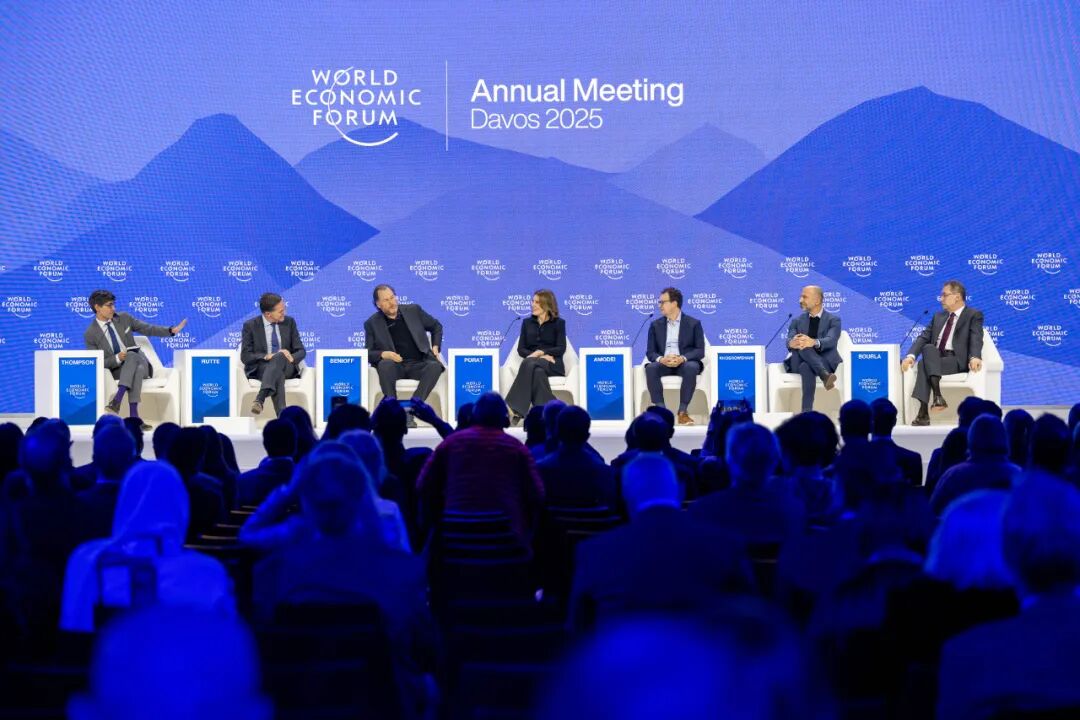
From personalized medicine and advanced materials to clean energy and resilient infrastructure, technological breakthroughs are sparking revolutionary changes across industries. Yet, it’s these same technologies that also carry the potential to amplify our vulnerabilities—through misinformation, shifting job markets, and privacy breaches. Faced with such significant risks, how can we ensure that our focus remains firmly on nurturing wisdom and creativity, driving solutions forward rather than creating new challenges?
Nicholas Thompson
CEO of The Atlantic
We will discuss topics such as democracy, inequality, businesses undergoing transformation, and artificial intelligence during this meeting.Technological breakthroughs have brought revolutionary changes to industries across the board, but they’ve also exposed the world to increasingly complex risks. So, what solutions should we adopt to address both the opportunities and challenges that technology presents?
Dario Amodei
Anthropic CEO and Co-founder
The biggest difference between AI and other technological revolutions lies in its astonishingly rapid pace of change. Within just 5 to 10 years, AI could achieve advancements that would otherwise take humanity much longer to attain. In the coming years, our primary focus should be on enabling empowerment and boosting productivity. While I remain optimistic about scientific progress, I’m less confident about the evolution of democratic political systems. In fact, AI could even contribute to greater instability in democratic nations. That’s why we need to explore how AI can help democratic governments deliver superior public services and deepen citizens’ understanding of their own governments.
Rutte
Secretary-General of the North Atlantic Treaty Organization
We need greater defense investment to fuel technological innovation. Currently, some of the constraints we face in scientific and technological advancement actually stem from bureaucratic red tape. While AI could be a valuable asset for Western democracies—since it helps us access vast amounts of information—in recent elections, voters largely gravitated toward either the left or the right because the centrist parties failed to provide clear answers to these critical issues. Ultimately, all political parties must address these key concerns in a balanced and thoughtful manner.
Mark Benioff
Chairman and CEO of Salesforce
Driven by technological transformation and innovation, we’ve reached a watershed moment—moving forward, we may not only need to manage people, but also oversee digital employees. This is truly something to look forward to. AI can empower us to streamline business operations and boost productivity, proving that in today’s world, only human-machine collaboration holds the key to success. At the same time, while acknowledging the criticism that AI is a carbon-intensive technology, we mustn’t lose sight of the broader challenge of global warming. Yet perhaps the most pressing threat of all is deforestation—already, emissions from this single issue have surged to three times the levels produced during the Industrial Revolution.
Ruth Polat
President and Chief Investment Officer of Alphabet and Google
The reason Google is now at the forefront and holding a competitive edge is that it has consistently invested in staying ahead of the curve and keeping pace with emerging technologies. While AI applications undeniably boost productivity, we must also pay close attention to the finer details of implementation. For instance, if AI can accurately detect diseases at an early stage, it could deliver significant benefits—both in developed nations and in developing countries alike. At the same time, we need to consider how to collaborate with other countries to drive digital transformations that reflect Western values.
Dara Khosrowshahi
Uber CEO
AI has the potential to bring significant changes to real-world transportation, and perhaps its greatest benefit could be saving lives—such as by reducing traffic accidents. Uber is collaborating with leading companies to roll out its products in a safe and responsible manner. While humans are prone to making mistakes, we must also establish clear standards for technology, defining exactly where AI can outperform human capabilities.
Alberto
Pfizer Chairman and CEO
The combination of biotechnology and digital technology is being widely applied in fields like cancer treatment, significantly enhancing the precision of eliminating cancer cells. Meanwhile, concerns about AI safety sometimes gain more traction on social media due to negative feedback, often making these issues seem more severe than they actually are.
Click here to watch the conference replay.
Energy Transition: Going All Out
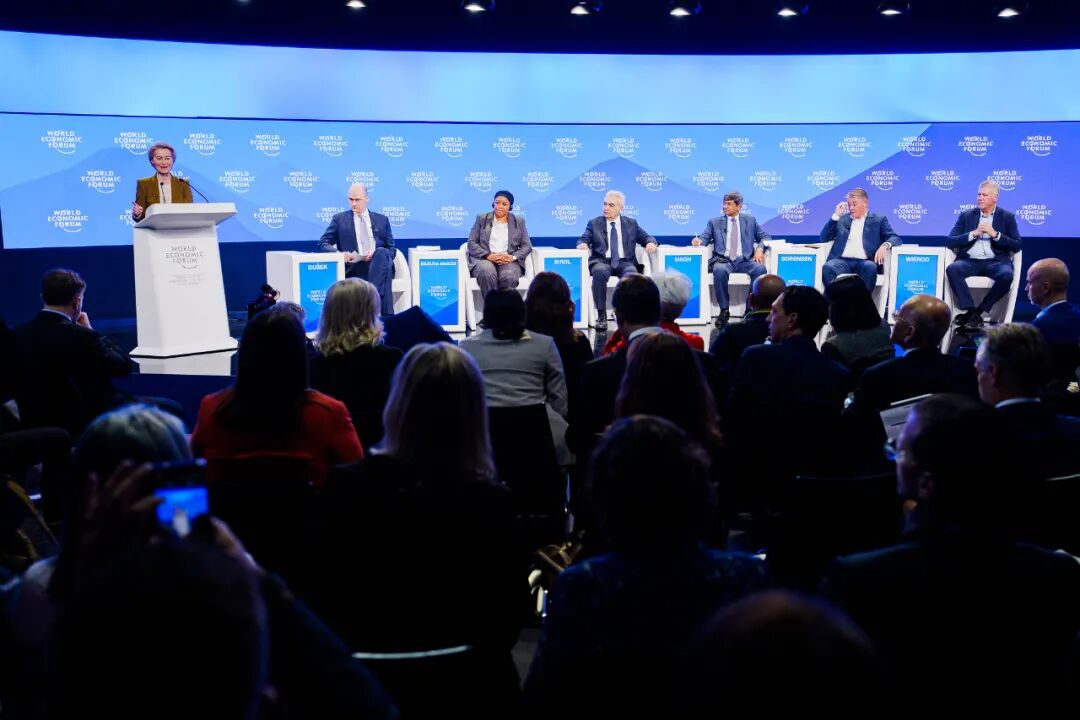
As the global goal of doubling renewable energy and improving energy efficiency by 2030 rapidly approaches, accelerating implementation, building political momentum, and monitoring progress are crucial. How can countries and industries close this gap?
Mirek Dušek
Executive Director of the World Economic Forum
Energy is critical to both our lives and our economies, and while the energy transition is already underway, it needs to accelerate. A key global focus remains how to drive this transition while ensuring energy affordability and security. At COP28, a target was set to double energy efficiency and triple renewable energy capacity by 2030. Meanwhile, at COP29, financing for the energy transitions in emerging and developing countries became the central issue—both areas that demand even greater effort moving forward. Right now, the most urgent priority is to speed up progress in improving energy efficiency and expanding renewable energy sources—this very topic lies at the heart of today’s meeting.
Ursula von der Leyen
President of the European Commission
The good news is that the world is transitioning to clean energy at an unprecedented pace—something that not only benefits the planet but also creates jobs and boosts economic competitiveness. While some progress has already been made, the global community still faces two major challenges: first, not everyone is fully on board with the global clean-energy transition, particularly in regions like Africa; and second, the pace of transformation remains too slow, especially in sectors such as manufacturing and infrastructure development. Today’s launch of the Global Energy Transition Forum sets three key objectives: sustaining momentum behind global energy agreements, turning ambitious goals into concrete projects, and mobilizing greater investment. In today’s era of intense geopolitical competition, predictability, certainty, and reliability have become more critical than ever. Europe remains firmly committed to this path and stands ready to collaborate with partners around the globe to accelerate the clean-energy transition.
Dina Boluarte
Peruvian President
Peru faces the threat of climate change but remains committed to meeting the goals of the Paris Agreement, striving to keep global warming within 1.5 degrees Celsius. The country boasts significant potential for renewable energy, particularly in solar and wind power, making its energy transition a pathway to diversifying its energy sources. Peru will achieve this by aligning national policies with sustainability targets, enhancing energy efficiency, and actively inviting investors to back clean-energy initiatives—thus driving sustainable development while safeguarding natural resources. Additionally, Peru is fostering regional collaboration with other Latin American nations and engaging proactively in international forums and platforms to foster global partnerships, stimulate investment and technology exchange, and accelerate the energy transition.
Fatih Birol
Executive Director of the International Energy Agency
Our goal was to triple renewable energy capacity by 2030, but according to current projections, renewables will grow by 2.7 times instead—leaving room for further acceleration, particularly in the area of energy efficiency. Globally, 85% of clean energy investments are flowing into developed economies and China, while only 15% are directed toward regions that house 60% of the world’s population—making Africa especially vulnerable to financing challenges. The notion that energy security and the energy transition are inherently at odds is misleading. In fact, well-designed energy transition policies can simultaneously bolster energy security, keep energy prices stable, and even stimulate job creation.
Lars Rødbjørn Rosenvold
Chairman of the Novo Nordisk Foundation Board
Novo Nordisk’s work is primarily driven by a European perspective, yet the solutions and initiatives we pursue are making an impact worldwide. We’re committed to advancing innovative bioprocesses, while also exploring how nuclear energy can help address global health challenges—and we’re investing in fusion research, aiming to unlock clean energy as a sustainable alternative. Additionally, Novo Nordisk has allocated resources to cutting-edge fields like supercomputing, artificial intelligence, and machine learning, empowering us to enhance the efficiency and productivity of energy systems. Finally, we’re planning to develop a life-science-inspired computer powered by advanced algorithms, with the goal of revolutionizing the way fertilizers are produced.
Gurdeep Singh
Chairman and Managing Director of the National Thermal Power Corporation of India
India has taken a leadership role in the energy transition, assuming significant responsibility in helping the world meet the goals of the Paris Agreement. NTPC has already become the fifth-largest power company globally, with a strong commitment to scaling up renewable energy—and is actively working to accelerate this growth even further. Beyond solar and wind energy, the company is also exploring opportunities in nuclear power, while simultaneously advancing the principles of a circular economy. Notably, India has unveiled an ambitious Green Hydrogen Initiative, particularly focusing on carbon capture and the utilization of green hydrogen. A critical challenge ahead lies in securing affordable, long-term financing—crucial support that can empower developing and underdeveloped nations to speed up their own transitions, ultimately delivering equitable benefits for humanity as a whole.
Morten Wierod
CEO of ABB (Asea Brown Boveri) Company
It is crucial to highlight the relationship between energy security and the energy transition. Energy security is the foundation that keeps society functioning—and it’s also the key to attracting investment. Once energy security is assured, we must accelerate the energy transition, particularly the shift toward renewable energy sources. This transition isn’t just an environmental issue; it also presents significant business opportunities, as companies can achieve sustained profitability while cutting emissions. I urge support for industries to move toward leaner, more efficient operations that are also cleaner—a goal that can be effectively realized through electrification, a vital tool for reducing our carbon footprint.
Bazaiiba Masoudi Eve
Democratic Republic of the Congo's Deputy Prime Minister and Minister of Environment and Sustainable Development
Facing the climate crisis, the Democratic Republic of Congo holds the potential to become a global leader in sustainability. With abundant forest and water resources, the country boasts vast hydropower potential and access to critical mineral reserves. Yet, only 14% of its population currently has access to energy—a stark disparity that the nation is actively addressing through innovative hybrid energy solutions. As a result, this presents immense investment opportunities, particularly in renewable energy sectors like solar photovoltaic, where returns can be exceptionally high. Moreover, the country urgently needs investments in technology and transportation infrastructure to enhance its ability to efficiently produce and distribute energy on a larger scale.
Click here to watch the conference replay.
Global Risks for 2025
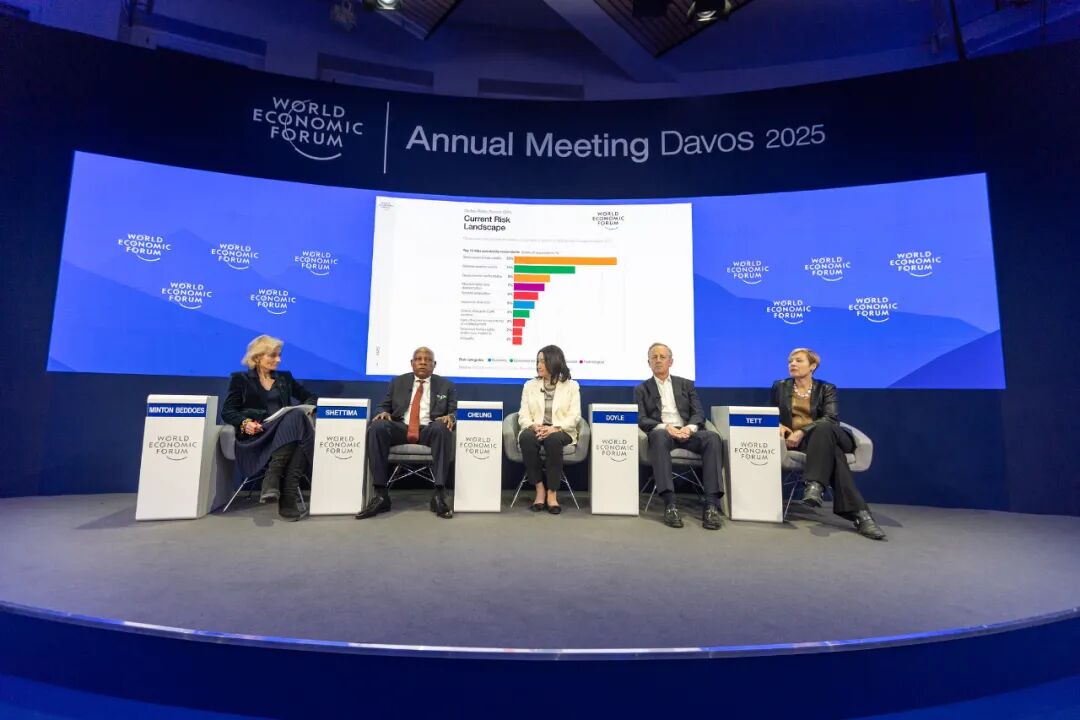
Global risks are constantly evolving in the short, medium, and long term—so how can global leaders prepare for emerging threats and build resilience to withstand shocks?
Gianni Minton Beddoes
Editor-in-Chief of The Economist
The international community is facing unprecedentedly complex challenges. Experts at the World Economic Forum warn that state-based armed conflicts have emerged as the most severe global risk today, particularly in Africa, where the humanitarian cost is overwhelmingly high. This reality not only reflects deep-seated geopolitical tensions but also underscores the critical test the international community faces in preventing conflicts and strengthening mechanisms for peaceful resolution.
Qasim Shetima
Nigerian Vice President
Africa is currently grappling with severe geopolitical challenges, as regional conflicts—from Ukraine to the Middle East and now Sudan—continue to erupt, posing grave threats to peace and development. Nigeria, meanwhile, remains deeply scarred by ongoing armed conflicts, a situation that underscores the deep-rooted issues plaguing sub-Saharan Africa. We must call for collective action through multilateral cooperation and the spirit of a shared global community, working together to address these pressing, worldwide challenges.
John Doyle
President and CEO of Daxin
Today’s world is at a crossroads of geopolitical transformation and rapid technological innovation, pushing the global economy toward a major transition. Digital technologies and artificial intelligence are profoundly reshaping economic structures, offering immense opportunities while also introducing systemic risks. Nations and businesses alike must proactively address technological advancements, shifting trade dynamics, and emerging cybersecurity threats—navigating uncertainty to identify strategic growth opportunities.
Martina Cheung
S&P Global President and CEO
The global economic fragmentation trend is intensifying, and its impact on supply chains and trade patterns cannot be ignored. Potential U.S. adjustments to trade policies—particularly tariff measures—will pose significant challenges for industries such as automotive manufacturing and data center development. The process of supply chain realignment is complex and time-consuming, requiring businesses to remain agile in order to adapt to future changes. Meanwhile, governments must thoroughly assess the long-term implications of their policies, striking a careful balance between macroeconomic considerations and sector-specific needs.
Gillian R. Tett
Provost of King's College, Cambridge University
In the digital age, society is facing an unprecedented crisis of trust. Traditional authority systems are gradually losing their effectiveness, and the younger generation increasingly relies on peer validation for information—creating a decentralized trust model that’s rapidly spreading through social media. While this trend empowers individuals with greater influence, it also carries the risk of information manipulation and societal division.
Click here to watch the conference replay.
The Outlook for the Middle East
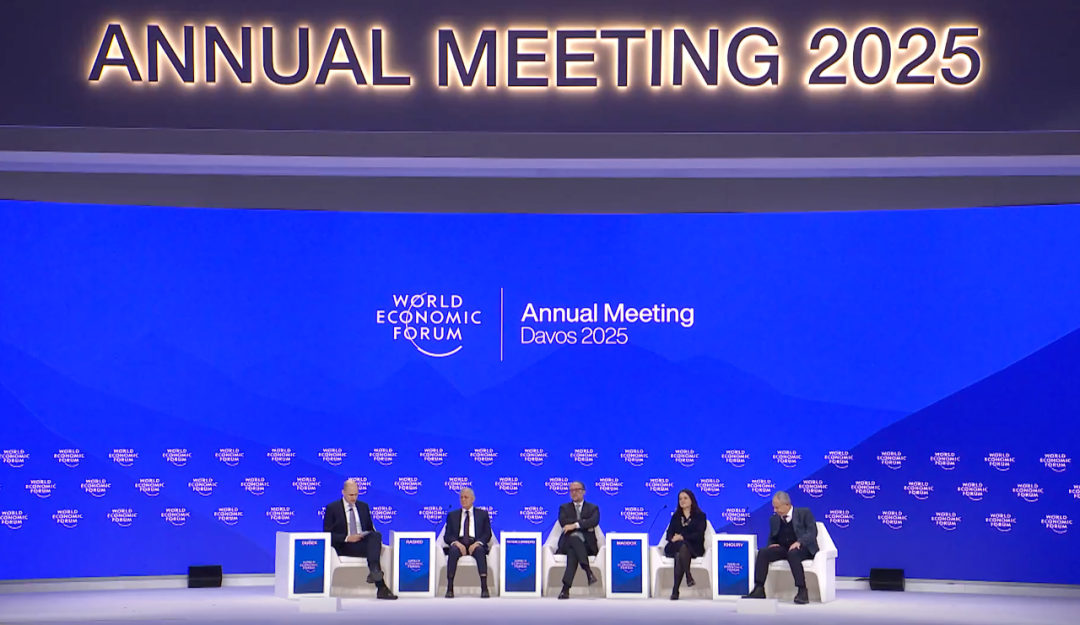
Recent events in Syria have introduced even more uncertainty into the already complex dynamics of the Middle East. As these developments trigger ripple effects across nations—impacting both economies and geopolitics—how will their regional and global consequences ultimately unfold?
Mirek Dušek
Executive Director of the World Economic Forum
This year's Davos Forum theme is "Collaboration in the Age of Intelligence." As the forum planned this year's event, it aimed to highlight the relevance of this theme to the Middle East region. Overall, the Middle East holds a critically important position on the global stage. In recent times, the region has undergone significant geopolitical shifts—changes that are also at the heart of this year's discussions. Meanwhile, numerous global stakeholders are already exploring how innovation and technological advancements can unlock new opportunities for development in this dynamic region. Bringing together leaders from across multiple nations, the forum seeks to foster dialogue and collaboration at this pivotal moment.
Abdul Latif Rashid
The President of Iraq
Over the past three decades, the Middle East has been grappling with conflict and instability—a situation that deserves everyone’s attention. Until the Palestinian situation is finally resolved, I stand firmly in solidarity with the Palestinian people. Syria remains a critically important nation in the region, yet Iraq sincerely hopes Syria will become a democratic state. To that end, Iraq has already sent a special envoy to the Syrian government while carefully monitoring the evolving developments on the ground. I sincerely hope that Syria’s new government will embrace inclusivity, ensuring representation for all segments of society. Although Iraq has successfully countered and contained terrorism within its borders, vigilance is still essential when it comes to potential terrorist activities along the shared Syria-Iraq border.
Alexander Schallenberg
Austrian Chancellor
The Syrian government should be given a chance to get back on the right track, as my recent talks with the Syrian foreign minister revealed that the country's leadership has expressed consistently positive and constructive views. However, I also hope Syria will genuinely implement the necessary measures to ensure an inclusive and peaceful transition. The situation in Syria remains highly complex, particularly when it comes to religious and ethnic dynamics. For now, the EU can play a crucial role by lifting sanctions, providing much-needed assistance, and engaging in dialogue with the new U.S. administration—ultimately helping to create economic opportunities for the entire Middle East region.
Bronwen Maddox
Director of the Royal Institute of International Affairs, UK
The Middle East has historically been a region rife with conflict, yet many of its nations are actively striving to move beyond these tensions and foster greater dialogue with both Africa and Asia. Cooperation between the Middle East and Africa is steadily growing—yet unless the longstanding Israeli-Palestinian conflict is resolved, true prosperity for the region will remain elusive. Currently, the fragile ceasefire in Gaza still falls short of a meaningful, two-state peace agreement. If Israel continues to sideline the Palestinian issue, the region will remain mired in instability—and this unresolved crisis will ultimately impact the lives of everyone living there. Meanwhile, Turkey’s involvement may not necessarily contribute to peace; on the contrary, it could further escalate already tense regional dynamics.
Samer S. Khoury
Chairman of the Joint Contractors Company
Here are four key differences compared to the situation on October 7: First, countries around the world—especially Israel—have failed to propose any effective military solutions to the crisis in Gaza. Second, achieving normalization on the Palestinian issue remains an uphill battle. Third, the events of the past 15 months have made it impossible for Palestinians to accept solutions they might have previously been willing to consider. Fourth, Trump’s team has appointed a special envoy, a move that deserves recognition. At this stage, I hope the international community will ensure that Netanyahu continues to uphold the ceasefire and prevent a third intifada in the West Bank. At the same time, we need an Arab-led solution, with Saudi Arabia, the UAE, Qatar, and other regional powers playing crucial roles.
Click here to watch the conference replay.
A special address by U.S. President Donald Trump
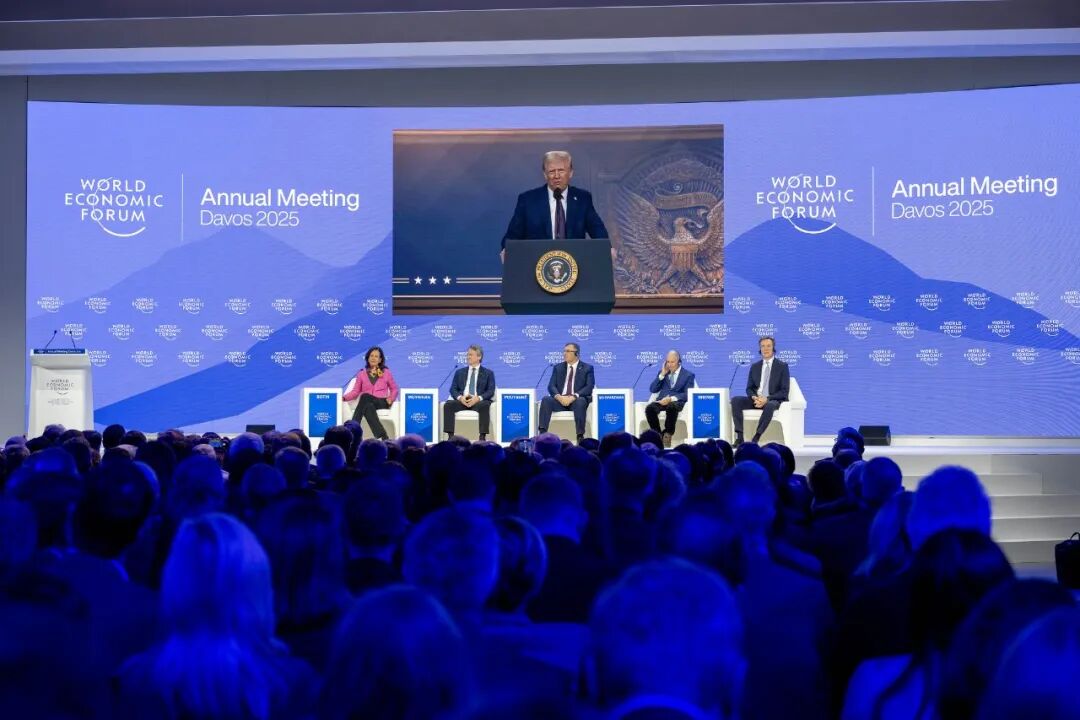
U.S. President DonaldTrump reiterated that prioritizing the return of manufacturing to the U.S. is at the heart of his future economic policy, urging companies to produce their goods domestically—or risk facing varying levels of tariffs. He also pledged to cut corporate taxes for businesses manufacturing in America down to 15%. Under the Trump administration, he emphasized, the U.S. will become the ideal destination for setting up companies and engaging in global trade. At the same time, he criticized the EU for imposing excessively high tariffs, implementing overly restrictive regulations, and maintaining a massive trade deficit with the U.S., signaling that he’ll take concrete steps to address these issues.
Additionally, Trump views America’s energy dominance as central to revitalizing the economy. He pledged to safeguard U.S. energy supplies to Europe and underscored the critical importance of U.S. liquefied natural gas shipments to the EU. In the energy sector, Trump also called on Saudi Arabia and OPEC member countries to help drive down oil prices, emphasizing that global interest rates must be cut immediately. He argued that lower oil prices would not only curb inflation but also create room for the Federal Reserve—and economies worldwide—to pursue further interest-rate reductions.
On the Russia-Ukraine conflict, Trump hopes the war can end as soon as possible, as many young people have lost their lives in the fighting, and numerous cities have been utterly destroyed.
Watch the replay:
https://cn.weforum.org/meetings/world-economic-forum-annual-meeting-2025/sessions/special-address-by-the-president-of-the-united-states-of-america/
Feel free to share this in your WeChat Moments; please leave a comment at the end of the post or on our official account if you’d like to republish.
Text content: Wu Yimeng, Sun Qian, Di Chenjing | Edited by: Wang Can
The World Economic Forum is an independent and neutral platform dedicated to bringing together diverse perspectives to discuss critical global, regional, and industry-specific issues.
Follow us on Weibo, WeChat Video Channels, Douyin, and Xiaohongshu!
"World Economic Forum"
